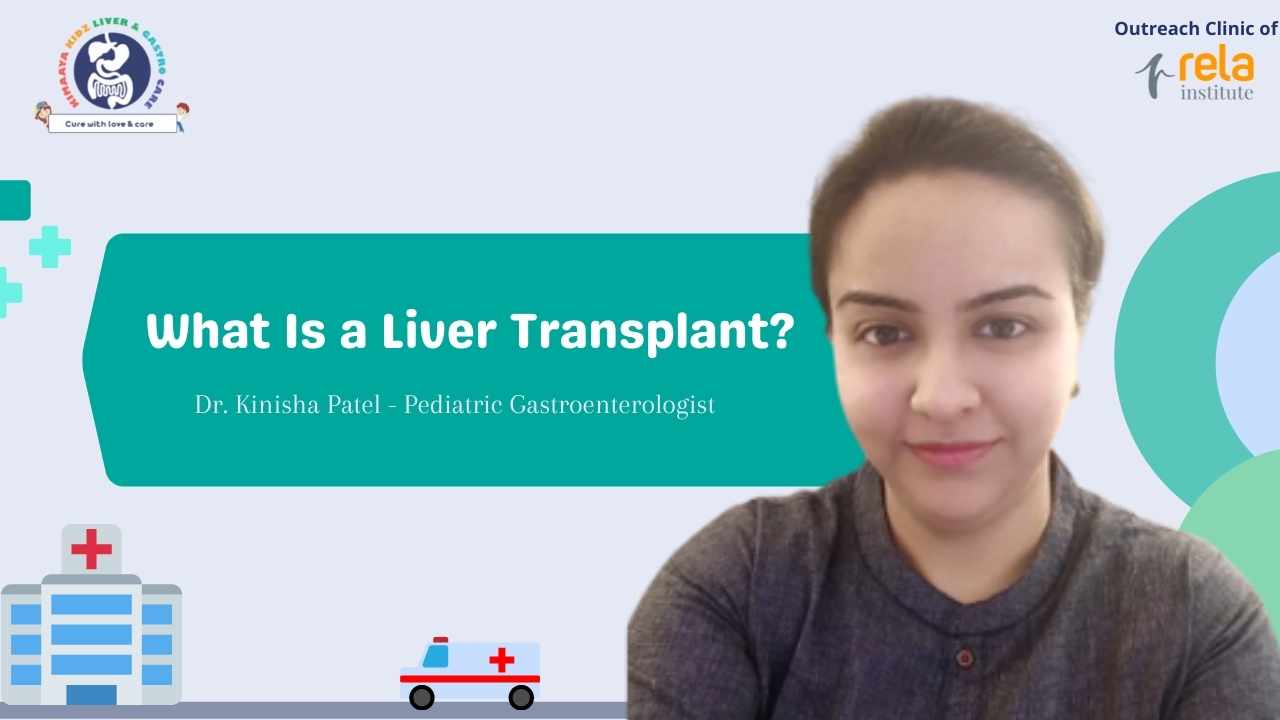Liver Transplant Surgery Procedure – Dr. Kinisha Patel
A liver transplant is a surgery in which doctors remove a sick (damaged) liver and replace it with a healthy donor liver.
Transplants are done when a child's liver does not work well and he or she won’t survive without a new one. Doctors sometimes call this liver failure. Doctors only recommend a liver transplant after they have tried all other treatments to save the child’s liver.
Most organ donors are adults and children who have agreed (or their guardians have agreed) to donate their organs after they die.
If a child doesn’t need an entire new liver, sometimes a living person, like a parent, can donate part of a liver. This is called a “living-related donor transplant”. A person who donates part of his or her liver can have a normal-sized liver again within just a few months of donating the tissue because livers grow new cells on their own (called regeneration).
What Happens Before a Liver Transplant?
If your child needs a liver transplant, your doctor will refer you to a transplant centre. There,
you’ll meet the members of the transplant team, which usually includes:
- Surgeons
- Liver specialists (hepatologists)
- Transplant coordinator
- Dietician
- Psychologists
The health care team will check to make sure that your child is healthy enough to have surgery and take the medicines needed after it. The team will do tests such as:
Blood tests: to determine blood type
Imaging tests: such as an abdominal ultrasound or CT scan
If the transplant team decides your child is a good candidate, the next step is to choose a blood group matched donor. A living donor’s thorough evaluation is done (usually a mother or father whose blood group is matched with the child) Your child’s name will go on an organ waiting list if no suitable living donor is available.
This list has the names of everyone who is waiting for a liver or other organs. Your child might have to wait to find a liver that is a good match. While you wait for a transplant, keep your child as healthy as possible. That way, he or she will be ready for transplant surgery when the time comes. Help your child:
- Eat healthy foods
- Take all medicines as directed
- Keep all medical appointments
Tell your doctor and the transplant center right away if is any change in your child's health.
What Happens During Liver Transplant Surgery?
After liver transplant surgery, your child will go to the paediatric intensive care unit (PICU) . How long your child stays in the PICU depends on his or her condition. Generally, the stay is just a few days. When ready, your child will be transferred to a special unit for transplant patients. There, the transplant team will care for and closely watch your child. Immunosuppressive medicines are started immediately post transplant with few more medicines.
Most children stay in the hospital for a couple of weeks after surgery. During this time, they and their families learn how to care for the new liver. Be sure you understand the doctor’s instructions, because your child will need to follow them carefully.
In the weeks after your child goes home, regular follow up as advised by Hepatologist is required so that the doctors can make sure that everything is going well.
What Problems Can Happen?
Most kids don’t have any problems after the surgery, but bleeding, infection, and other problems can happen.
One of the most common problems after transplant surgery is rejection. Rejection happens because the body doesn’t recognize the new liver and doesn’t know that it is helpful. So the immune system tries to attack it.
Medicines (called immunosuppressants, or anti-rejection medicines) help to control this reaction. In a sense, they trick the body into accepting the new liver. Taking them can make your child more likely to get infections, especially in the days right after surgery. So keep your child away from sick people, and have everyone at home wash their hands well and often.
The risk of rejection is greatest in the first few weeks after transplant surgery. But the body never completely accepts the new liver. So immunosuppressant medicines are taken for life.
Usually, the amount of immunosuppressants taken is reduced as the body gets used to the new liver. Rarely, the body refuses to accept the new liver and another transplant is needed.
These side effects are a major reason why teens are at risk for not taking their medicines after a transplant. This can be dangerous and even lead to rejection of the new liver. So be sure to talk about the importance of taking all medicines as directed.
/*54745756836*/

